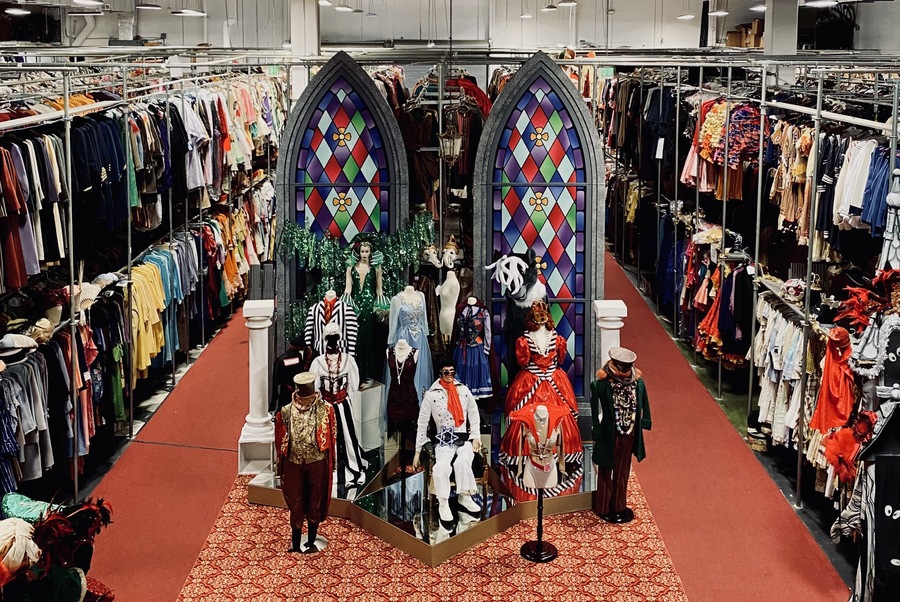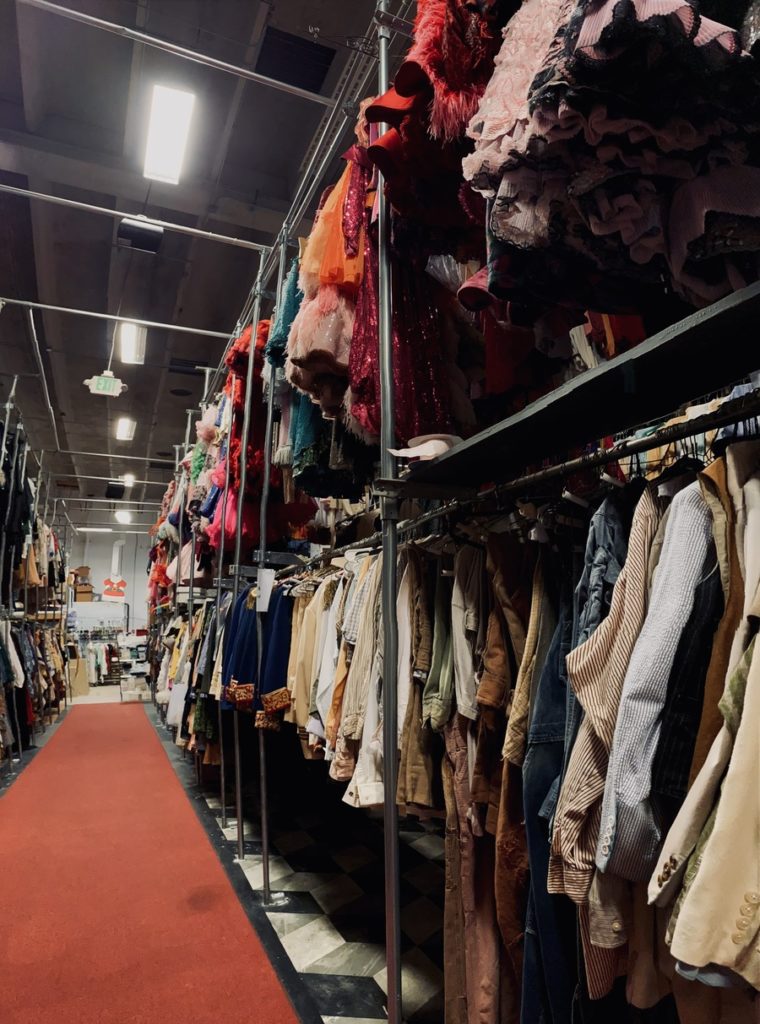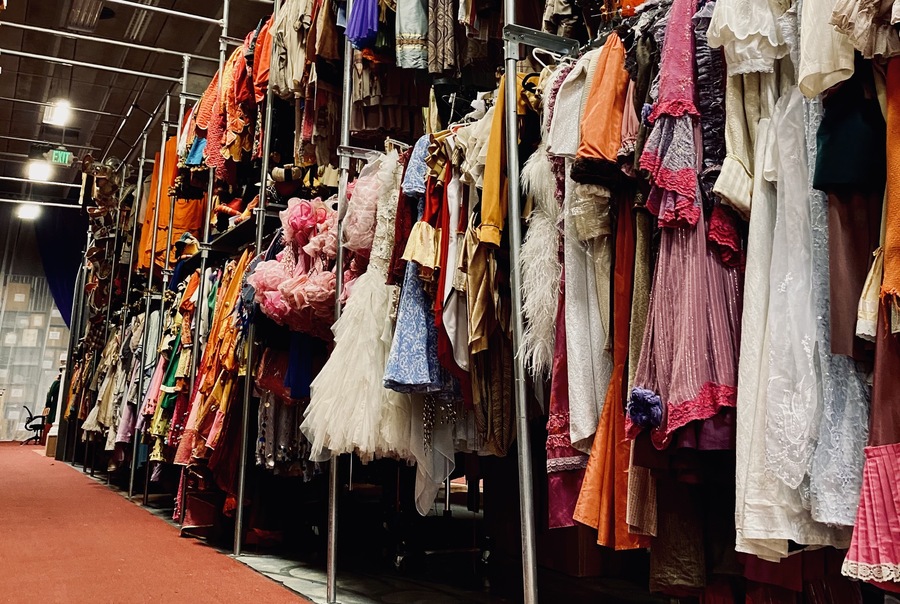When the pandemic curtain came crashing down last March on Costume World Theatrical, arguably the largest wardrobe supplier in the nation, the staff realized that 175 costumes were stranded in locked-down closets in deserted theatres across the country—even some in Europe. Even worse, checking with its clients Off-Broadway, in regional theatres, opera companies, and schools, executive managing producer and CEO Marilynn Wick (she/her) discovered that scores of pending contracts—especially for summer festivals—had evaporated in a matter of days.
Accustomed to grossing multiple million dollars a year, the Florida-based company now expects to fall short of $150,000 for 2020, earning as little as $1,000 during one nadir of a month, Wick said.
“During 9/11 people were very frightened to go out into the world and our business declined about 30 percent. This is three times worse. All of a sudden everything’s stopped,” Wick said of a paradigm now familiar to theatre-supporting businesses in the United States.
Wick’s adjoining Costume Museum closed down its public tours of original wardrobes from Broadway productions and high-profile revivals, such as the original Tony-winning gowns designed by Sir Cecil Beaton and worn by Julie Andrews in My Fair Lady.
The final blow: The company’s sister operation, the Wick Theatre in Boca Raton, Fla., shuttered its own highly anticipated production of A Chorus Line after one preview and two performances. Even today, as Wick comes to work, the white line and mirrors of the minimalist set stand there idle, as if in mockery.
Despite this considerable financial damage, like so many other similar companies, the 44-year-old Florida firm with a satellite in Dallas is doggedly fighting to recover. After a couple of hiatuses, and tens of thousands of dollars spent on measures to battle COVID-19, the theatre has been staging cabarets regularly since June in its large lobby, attracting a steady clientele of returning seniors. Months upon months of negotiations with Actors’ Equity continue, and the theatre has committed to a late April resurrection of A Chorus Line to kick off a full season in its auditorium. At least Wick hopes so.
But the inventory of 1.2 million costume pieces hangs idle, except for a handful reserved for a few education-related productions. Wick has been feeling out her regular clientele, including light opera troupes and summer stock groups, who say they are pessimistic that they will have returned to full operation this coming summer. “All of my theatrical wardrobing business came to a complete standstill despite our many attempts to encourage our clients to ‘look ahead to the future’ and continue to do business with us, however speculatively,” she said.
Like so many theatre-related companies, she has laid off much of her staff, some of whom have worked for her for 20 years. She won a government loan, has been selling off assets, and is offering steep discounts to the few companies who might still be producing later this year.
Observers believe the company’s best asset is Wick herself, a 70-something force of nature whose outsized personality has driven a self-built career that began in real estate in New York, Pennsylvania, Georgia, South Carolina, and California. She then created an industrial window-cleaning firm for high-rise buildings based in Florida, as well as a salvage business.
The costume business had a modest origin in the mid-1970s when a friend asked Wick, then a single mom, to create a Santa Claus suit for a company Christmas party. With her young girls, Kelly and Kimberly, Wick built the outfit on their dining room table.
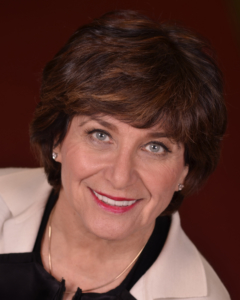
Unexpected word of mouth resulted in requests for pandas, Easter bunnies, and Halloween creatures, and convinced Wick there was a market. She opened the company in Boca Raton in 1976, took out newspaper ads, and reached out to theatres. The amassing, manufacturing, altering, and designing of costumes over the decades grew exponentially, with acclaim on People magazine, The Today Show, and nominations for regional theatre awards. Indeed, having just 175 costumes on the road when the pandemic hit was a lucky stroke; the company more typically has around 1,000 pieces on stages on any given week, she said.
Recovering their stock from shuttered theatres required intense, protracted efforts. “For three months we sat silent and we were worried,” she admitted. When the costumes finally began returning, her reduced work force faced a gargantuan task. “Every box, every garment had to be sprayed outside and disinfected. We were in these jumpsuits with rubber gloves because we so afraid to be touching anything.”
There’s no good time for a pandemic, but COVID-19 hit at a particularly terrible juncture. The costume supply industry has been decimated over the past three to six years, as some theatres, school drama programs, and citizens holding lavish costume parties have turned to Amazon and even Party City for wardrobe. At one time, the National Costume Association had 350 members, but it’s dwindled to 100, she said. Once there were three major costume suppliers based in the Dallas area; Wick is the only one left in that market. She has closed five other outlets of her own satellite stores in recent years in cities like Pittsburgh.
Indeed, her company was once the second or third largest supplier in the country. She became the largest in 2005 when she bought out the massive stock of Dodger Costumes in New York City. She now has original wardrobes from over 35 Broadway productions, such as the Guys and Dolls revival, over 90 Tony nominated shows, and 38 Tony winners created by William Ivey Long and Tony Walton, among others.
But she has refused to surrender. After a few weeks’ closure in the spring, she began the expensive refit of her Wick Theatre and Costume Museum facility in Boca Raton. Then she began producing or hosting the procession of revues and cabaret acts.
Perseverance fits her pattern, friends aver. Wick invested more than a million dollars of her own money and took out a bank loan in 2013 to lease and then buy the foreclosed Caldwell Theatre building, which would become her performing venue in addition to her warehouse. She funded massive renovations of the building with the appearance of high-dollar elegance to attract Palm Beach County’s well-heeled denizens. Then she reopened the expanded Costume Museum and installed a fine restaurant decorated with artifacts from New York City’s Tavern on the Green auctioned off in 2010.
Since then, her list of subscribers has grown year after year to about 3,800 last season, though the post-pandemic figure is about 1,500.
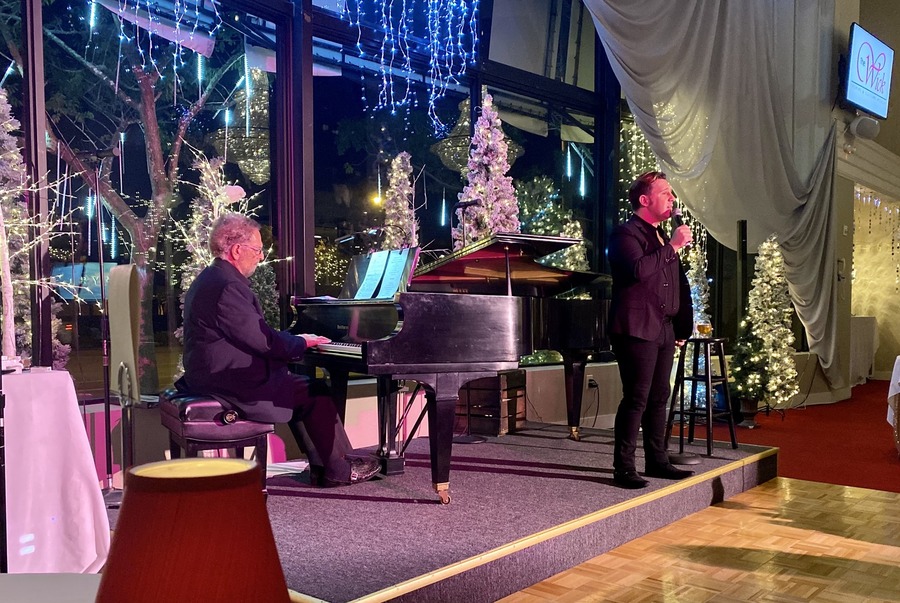
The specific realities of running a theatre have been challenging for someone who never helmed one, no matter how involved she was on the periphery. But her advantage, observers have said, is her extensive business experience including specializing in rescuing and resurrecting failing companies.
She has specialized in large-cast mainstream classic musicals, the kind preferred by her older audience of snowbirds and retirees. Sometimes she uses recorded tracks, sometimes live bands. She casts locally, often with non-Equity performers but sometimes brings in out-of-town Equity leads. Obviously, among the shows’ strengths is her costumes, including those created fresh for each show. The programming has been immensely popular with her subscription audience, and receive critical reviews varying from laudatory to unenthused. Some shows have made national headlines, such as Lee Roy Reams starring as Dolly Levi, and Leslie Uggams in a troubled outing of Mame.
In the past few months, she has been limited to the lobby shows, with a variety of acts ranging from supper club revues to drag comedians to name performers like Billy Stritch. The performers work from a small bandstand or on the wide steps leading to the shuttered auditorium. She says she usually filled the 55 socially distanced seats.
Besides replacing the air conditioning system to increase air flow and filtering, she ensures a list of precautions are followed, even installing a full-time attendant to clean the restrooms throughout the evening. Her website and her weekly emails to patrons includes a video about the efforts, meant to comfort her fans, many of whom are in the danger zone for the virus, age-wise.
“Every person calls the box office and they say, ‘I watched that video and I feel very safe to come,'” Wick said. “That’s another thing that every theatre should be doing.”
In a classic Wick-style fillip of wry showmanship, she sometimes dresses full-sized dummies in her idle costumes to resemble Elvis, Elton John, Michael Jackson, and Marilyn Monroe and sticks them in the empty seats used to maintain social distancing.
While many South Florida theatre leaders are pessimistic about when theatre-hungry audiences will feel it is safe to return, Wick’s regulars appear to be comfortable. “There are a percentage who are not fearful,” said Francesca Daniels, a semi-retired finance expert who moved to Florida from Beverly Hills. “They wear masks, distance appropriately, and have a good time. And there are people who stay locked up in their room. It’s a choice.”
All of this is meant to restore at least a minimal cash flow, and more importantly to keep the theatre’s profile vibrant in the consciousness of a clientele who tell her how anxious they are to get back inside the main auditorium to see full-fledged productions.
The cabarets and a couple of seriously socially distanced “events” in the auditorium “weren’t in any way money-makers for me,” Wick said, “but they did keep my audience engaged and some local performers employed.”
She is also focusing on the performance option, an ace in the hole that few other theatre supply companies have. Until theatre across the country resumes with any magnitude—which Wick expects no earlier than next fall, if luck holds—the alleys of racked costumes across 42,000 square feet lie dormant.
But Wick is too experienced a businesswoman to bet too heavily.
“Anticipating another shutdown to come soon, we are girding ourselves for another lull that, hopefully, we can survive,” she said. “Am I optimistic? I have to be. I have little say in the matter at this point and there’s no sense in looking backward.”
Bill Hirschman (he/him) is the editor and chief critic at Florida Theater On Stage. bill@floridatheateronstage.com

